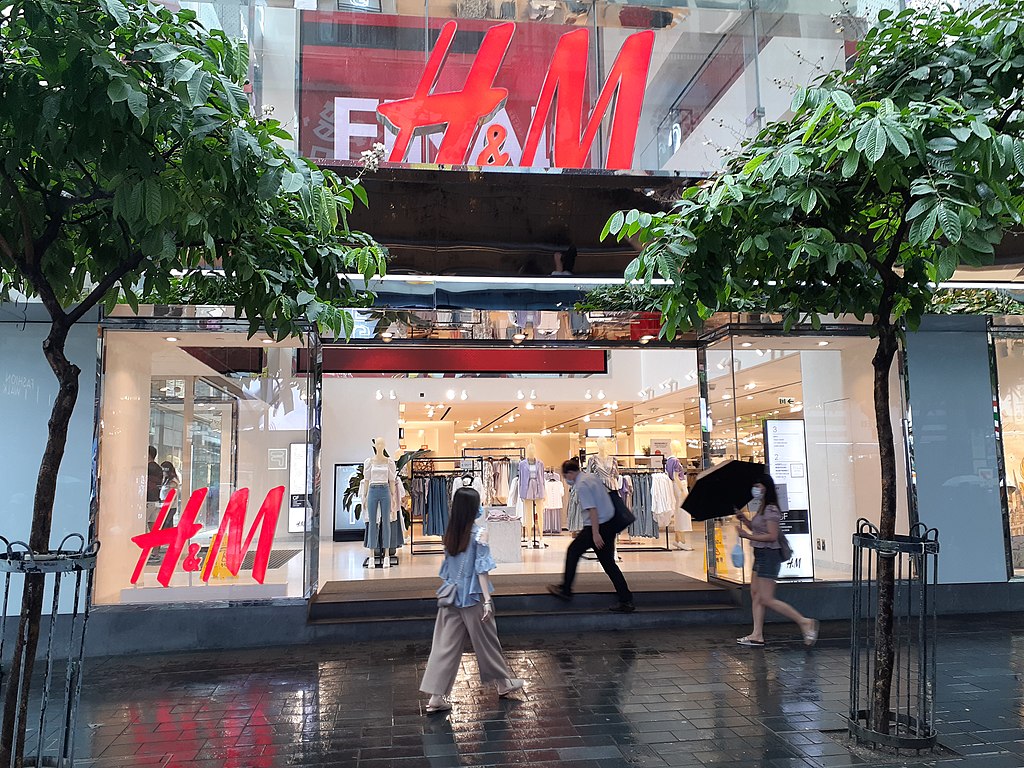Many large clothing companies are facing a tough choice in China – do they lose Chinese business by speaking out about the way China is treating people? Or do they remain quiet so that they can keep selling in China?
China offers businesses huge opportunities. More people live there than anywhere else in the world. That makes it a very important “market”, or area for selling things. China is popular with businesses because its factories are advanced, but its workers aren’t paid very much.
😕
This image has not been loaded because of your cookie choices. To view the content, you can accept 'Non-necessary' cookies.
China offers businesses huge opportunities. Its 1.4 billion people make it a very important market. China is popular with businesses because its factories are advanced, but its workers aren’t paid very much. Above a woman in a factory in Huaibei, China.
But doing business in China comes with great risks. The government’s rules must be followed, even if those rules go against the ideas that the company believes in.
If the Chinese government turns against the company, there’s no way to fight back. The Chinese government controls newspapers, as well as TV and radio stations. It keeps tight control over everything that is said on the internet and social media.
In 2019, for example, the manager of the Houston Rockets NBA team made a social media post supporting protesters in Hong Kong. Very quickly, Chinese basketball groups cut their connections with the team. Rockets games and information about the team were removed from Chinese TV stations and sports sites.
😕
This image has not been loaded because of your cookie choices. To view the content, you can accept 'Non-necessary' cookies.
In 2019, the manager of an NBA team made a social media post supporting Hong Kong protesters. Chinese basketball groups quickly cut their connections with the team. Above, a worker removes a poster for an NBA game in Shanghai, China in response to the post.
Uighurs in Xinjiang
Most of China’s 1.4 billion people come from a background known as “Han Chinese”, or just “Han”. Han people have similar looks, similar backgrounds, and speak the same language.
But 8% of China’s people aren’t Han. China has 55 “ethnic minorities” – groups with backgrounds different from the Han. “Uighurs” are an ethnic minority who live in Xinjiang, far to the west of China. Uighurs are Muslims who speak their own language.
The center of the current problem is the Chinese government’s treatment of Uighurs in Xinjiang. China’s government is reported to be holding a million or more Uighurs in special camps, where they are treated extremely poorly and are forced to work.
😕
This image has not been loaded because of your cookie choices. To view the content, you can accept 'Non-necessary' cookies.
Uighurs are an ethnic minority who live in Xinjiang. They are Muslims who speak their own language. China is reported to be holding many Uighurs in special camps, where they are treated poorly. Above, a Uighur family prays during a Muslim festival in 2016.
The Chinese government denies that it is mistreating Uighurs. It says they are being trained for jobs.
Xinjiang is known for producing a lot of cotton, a material used in clothing. There have been several reports that Uighurs are forced to help produce this cotton.
Following these reports, customers in places like the United States and the European Union began to pressure clothing companies. They wanted the companies to stop using cotton from Xinjiang.
😕
This image has not been loaded because of your cookie choices. To view the content, you can accept 'Non-necessary' cookies.
Xinjiang produces a lot of cotton, a material used in clothing. There have been several reports that Uighurs are forced to help produce this cotton. This picture of workers cleaning cotton in Xinjiang is from 2005. The workers shown aren’t being forced to work.
In response, companies like H&M and Nike stopped using Xinjiang cotton. Several made statements about the situation. Now they are now facing a boycott in China.
A week ago, news groups run by the Chinese government encouraged people to stop buying clothes from H&M. They said that H&M shouldn’t do business in China if it was going to complain about how things were run. People on social media sites soon began complaining about H&M, too.
In about a day, H&M had nearly disappeared online in China. No websites sold its clothes, and search websites stopped giving information or addresses for H&M stores.

(Source: Lynuetyeang UV2002 [CC BY-SA 4.0], via Wikimedia Commons.)
Other companies like Nike, Adidas, and Converse were also included in the boycott. Several Chinese stars who are paid to promote Nike and H&M said they would no longer support the companies.
The pressure on these companies is huge. H&M depends on China to make its clothing cheaply. And in 2019, the company earned $1.4 billion selling clothes in China.
The companies have a hard decision to make: Ignore people being mistreated, or speak out and pay the price?
Did You Know…?
The problem of Xinjiang cotton is especially tricky for makers of clothing. That’s because most clothing companies don’t make their own clothes. Instead they hire other companies to make the clothes. The company that sells the clothing may not actually know where all the pieces came from.
